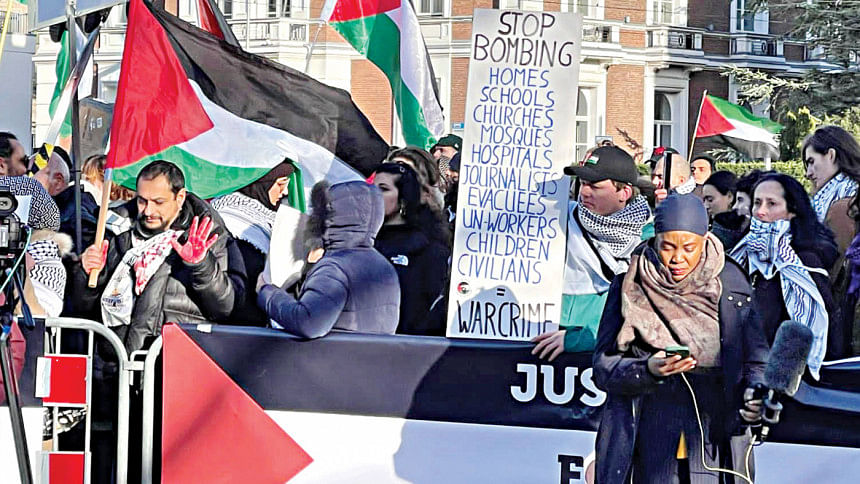Gaza starves as Israel’s offensive expands

In battered, hard-to-reach north Gaza, rare aid deliveries get mobbed by desperate, hungry Palestinians and aid workers report seeing people thin and visibly starving with sunken eyes.
Hunger stalks the entire Gaza Strip, the tiny enclave where 2.3 million people have been living under Israel's bombardment since October 7. The United Nations warned this week that pockets of the territory face famine.
While areas near the Egyptian border get limited supplies of imported food, people in the north and centre of the strip, where fighting has been fiercest, face catastrophe aid workers say.
The head of the World Health Organization Tedros Adhanom Ghebreyesus called for a ceasefire and a "true solution" to the Israel-Palestinian conflict in an emotional plea to the global health body's governing body on Thursday where he described conditions in Gaza as "hellish".
"I'm a true believer because of my own experience that war doesn't bring solution, except more war, more hatred, more agony, more destruction. So let's choose peace and resolve this issue politically," Tedros told the WHO Executive Board in Geneva during a discussion about the Gaza health emergency.
"The food situation in the north is absolutely horrific. There's almost no food available and everybody we talk to begs for food," said Sean Casey, a World Health Organization (WHO) coordinator in Gaza.
No comprehensive data on hunger is available for Gaza, with aid agencies struggling to move and communicate amid the fighting. They plan to assess malnutrition by measuring around children's arms for signs of wasting flesh.
A UN-backed report in December said the whole population of Gaza faced crisis levels of hunger and a growing risk of famine.
Medics in Gaza hospitals describe babies born sick to malnourished mothers, infants losing weight, mothers unable to produce breast milk and injured patients too weak from hunger to fight off infection.
In a Rafah hospital ward, paediatric doctor Jabr al-Shaer pointed to a baby whose weight had plummeted to 5.5 kg (12 pounds) from 7.5 kg a month and a half ago.
"This is bad. It impacts his immunity. He constantly has inflammation in the chest and gastroenteritis," he said. His mother, Shoruq Shaaban, who is breastfeeding her baby, has little to eat herself. Like most other people in southern Gaza she now lives on a little bread and canned food.
The UN children's agency Unicef projects that over the coming weeks more than 10,000 children in Gaza risk wasting, one of the most serious results of malnutrition, which can stunt physical growth and brain development.
"We saw a lot of very thin people just sitting around and staring into space looking wasted," said Nick Maynard, a British surgeon who worked in central Gaza in December and early January with the charity Medical Aid for Palestinians. "There was very clear evidence of people who were now malnourished," he said.
Ayadil Saparbekov, a WHO doctor in northern Gaza, said he had particularly seen children showing signs of wasting, and described people coming to beg for food, raising hands to mouths to mime eating.

 For all latest news, follow The Daily Star's Google News channel.
For all latest news, follow The Daily Star's Google News channel. 




Comments